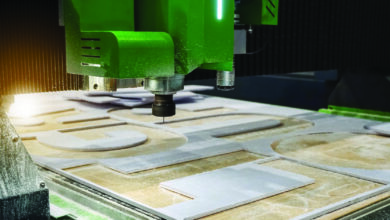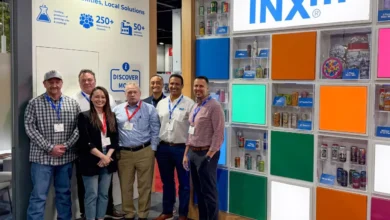Canadian Print Shop Offers Not-For-Profit COVID-19 Signage
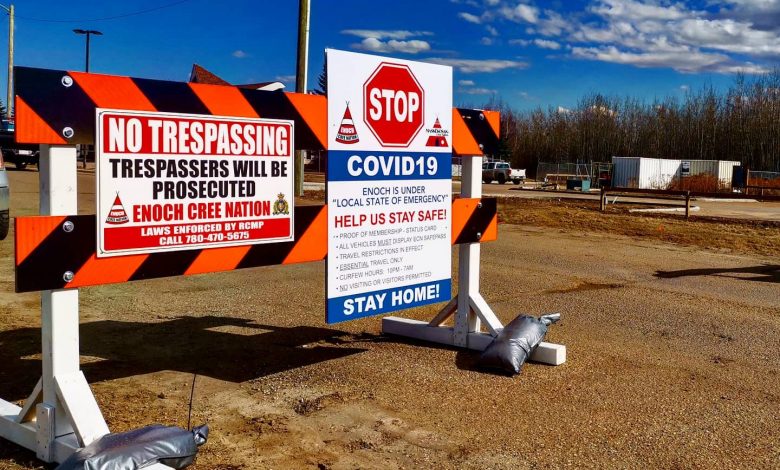
In a recent interview with Roland DGA, the founder of Printology Digital Shawn Marko shares what he’s doing during the COVID-19 pandemic to stay productive and in business. Printology Digital is an Alberta, Canada-based large-format digital printer that offers stickers/decals, banners, indoor and outdoor signage, vehicle wraps, as well as custom project execution.
With COVID-19 having such a significant impact on livelihoods and businesses, graphics shops must shift their focus during this time and think of new ways to generate revenue and reach new customers.
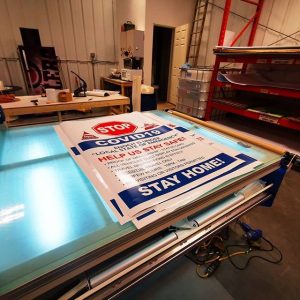
Printology Digital is one of those shops doing just that. It’s using its capabilities to play a pivotal role in helping local Alberta businesses manage the crisis. It’s offering COVID-19 signage to customers at a “not-for-profit” rate to help them during these difficult times.
“We feel that this should be top priority for sign companies right now,” Marko says. He continues, adding that now is the time to build trust and offer great products, along with excellent customer service. These two business characteristics get money in the door now, but when the pandemic is over, they will hopefully have customers returning and new customers reaching out.
In the interview, Roland asks about Printology Digital’s past and current services, wondering if hazard and warning signs were previously part of its offerings.
Marko says his shop has had a massive surge in demand for COVID-19-related signage in the last three weeks. Before the virus outbreak, Printology was producing signs for the construction sector, like safety site messages and fence banners. Lately, the shop also specializes in large surface murals and art installations. “These applications have helped us in scaling-up our current COVID-19 sign production,” Marko tells Roland.
To manage the print volume coming in during this time, Marko says extra security cameras have been installed throughout the shop to keep an eye on printers and the additional print production. Marko says he’s also made use of Roland’s OnSupport feature, which sends an email alert when any Roland printers run overnight.
Additionally, Marko has been in constant communication with suppliers to make sure all necessary inks and supplies are in stock or on order.
To remain safe while in operation, the shop has done its best to eliminate any physical interactions with clients. It has implemented daily cleaning and sanitizing, curbside pickup, as well as order processing from home.
Marko argues that having signs making people aware of safety measures is more important now than ever before. “It’s crucial that our industry is doing its part to support our communities and keep each other safe by proving these reminders,” Marko adds.
Looking into the future, Marko says it’s tough to know what the needs will be, but for now, COVID-19 signage is “important until a vaccine is developed and administered.” Even when states lift stay-at-home and safer-at-home orders, and shops go back to “regular” work, Marko says handwashing and hygiene messaging will still be necessary, as well as signs encouraging people to stay home if they’re sick.
For shops looking to serve their local communities and offer COVID-19 messaging, Marko says sign shops should have a portfolio of standard safety signage ready for customers to view.
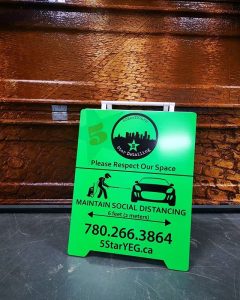
Marko believes social distancing signs like the one above may become the new normal for public establishments like restaurants, shops, and stores.
When it comes to a business strategy for coping with the outbreak, he says, “Word-of-mouth and producing exceptional quality work during this time has been our saving grace. We’ve also gained huge support on social media over the past few weeks and have built a lot of great relationships with our local community and small businesses. Moving forward, I think supporting local businesses should be a primary focus of every print shop.”
To close the interview, Marko leaves shops with some parting advice. He encourages print shops to focus on customer service, quality, and making sure every order is given 100% before going out the door. He tells shops to keep an eye on color matching, do regular spot checks, print in high quality, and make sure lines are clean.
With extra time, he tells shops to go the extra mile and make thank you cards for orders. “’ Good enough’ will not get your business through this difficult time,” Marko insists. “It’s our view that positive interactions with clients during this pandemic will really pay off once everyone recovers.”
Aside from customer service, Marko tells shops to use downtime to get the shop organized and tackle any creative projects that have taken the back burner. He adds, “You’d be surprised how few people have actually read their owner’s manual for their equipment!”
Find Printology Digital on Facebook and Instagram.
